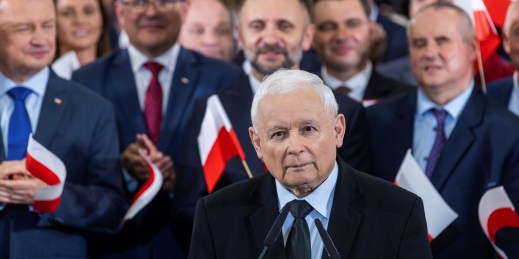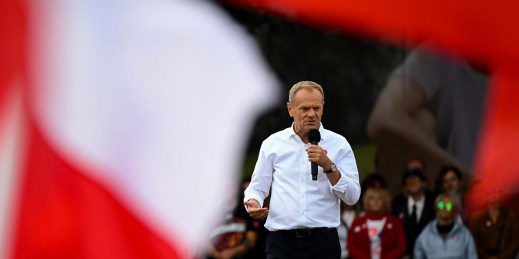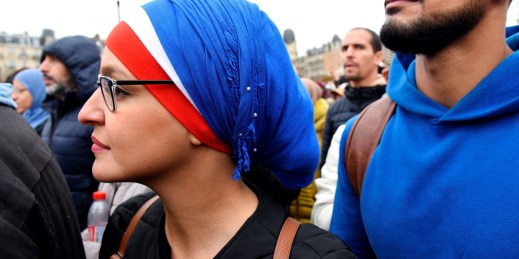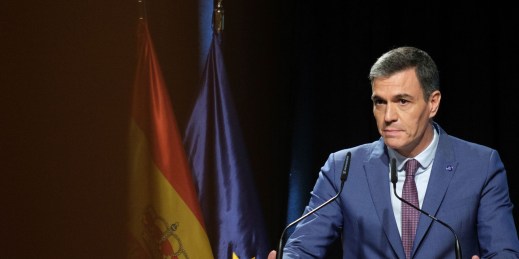
Poland’s parliamentary elections on Oct. 15 could cement the ruling PiS party’s hold on power—or usher in its demise. Once again, the election centers on the rivalry between PiS and the centrist Civic Platform party that has dominated Polish politics since the mid-2000s. Warsaw’s partners and allies will be watching closely.



